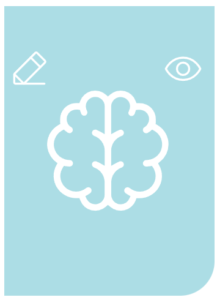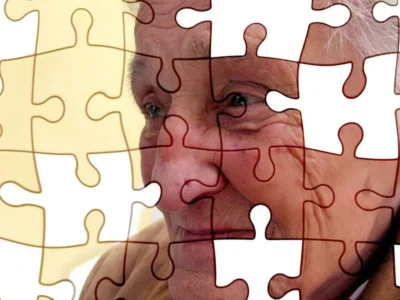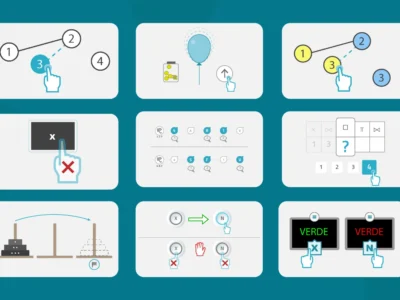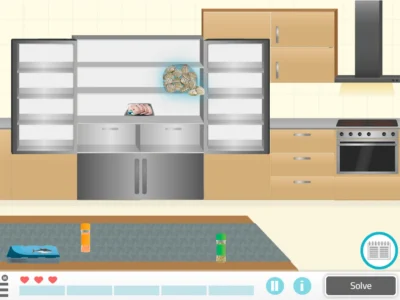The Otaduy Education and Health Center explains cognitive stimulation for children in the clinical and academic setting.
Otaduy Education and Health Center is an Education and Health center that provides a comprehensive and multidisciplinary service in the field of learning and health, understanding learning as an implicit part of the child’s development.
For this reason, our team of specialized professionals is led by Dr. Otaduy, a pioneer in this method based on the understanding of learning together with the child’s needs at their different developmental milestones, including speech therapists, educators, neuropsychologists, clinical and school psychologists of different specialties and teaching staff.
The fact that the child’s development is implemented in the concept of learning has led within our method to the search for a system of clinical cognitive stimulation, validated and recognized, such as NeuronUP.
We know that cognitive stimulation has its origin in the concepts of cognitive rehabilitation and neuropsychological rehabilitation, but in our case cognitive stimulation for children goes much further.
Cognitive stimulation for children
The brain is fundamentally plastic, capable of modifying its structure and functioning under appropriate conditions; it has the ability to renew or reconnect its neural circuits, so children WITH OR WITHOUT, neurodevelopmental disorders who engage in cognitive stimulation are capable of learning and developing cognitive functions that were not previously established.
The more stimulation they receive, the more complete their neurological organization and the more their capacities and skills improve.
Objectives of cognitive stimulation for children
Our main objectives when working with cognitive stimulation are:
- Activate, stimulate, and train specific cognitive abilities (perceptual reasoning, verbal comprehension, working memory, and processing speed) in an appropriate and systematic way to transform them into a skill, a habit, and/or a proficiency.
- Develop mental capacities; improve and optimize their functioning; rehabilitate and recover functions and capacities that suffer greater cognitive deficit, especially sustained attention, working memory and processing speed.
Thanks to NeuronUP, we can, not only, train and improve the cognitive abilities, but it also gives us the valuable possibility of obtain continuous feedback on the development and progress of each child in the areas worked on. It can serve as training for students of any age who wish to improve their academic performance.
Our work consists, within the program tailored to each student, of adapting and personalizing the different cognitive stimulation exercises to individual needs.
Cognitive stimulation for children with learning difficulties
For example, with students who do present learning difficulties, the cognitive skills related to inhibitory capacity are worked on, adapting programs of:
- Attention focal and selective, divided and sustained, as well as span, orientation, flexibility, and inhibition;
- Immediate memory, working, episodic, semantic, procedural, and prospective;
- Language (phonology, lexico-semantics, syntax, discourse, pragmatics);
- Reasoning (categorization, abstraction of Similarities and Differences, analogical relations, and logical reasoning);
- Constructive praxias, ideational and ideomotor;
- Executive functions (organization, planning, flexibility, and initiative);
- Perception (recognition and perceptual discrimination, visuospatial functions, and body schema);
- Orientation, spatio-temporal (space, time, person).
Our experience with NeuronUP
Since 2017 we have conducted this cognitive stimulation with the NeuronUP program.
We chose this program among the existing offerings mainly for its great versatility and for the possibility of being able to personalize our individual programming, adapting the activities of each user.
We can select the areas of intervention most needed in each case, in a playful and pleasant way, being able to compare the results and the progress that each student shows:
Assessment
- Initial,
- formative,
- final.
Student motivation
By being able to select the activities that best fit each child, we achieve the student motivation, since the content is presented in a very visual way and captures their attention.
We speak of a new concept of cognitive stimulation, not only in its clinical version, but as a means to enhance the optimal development of learning.
The importance of training cognitive development
In the same way that physical exercise is necessary in children and young people during stages of their development, to improve their physical and mental state, the use of cognitive stimulation is a useful and necessary means for the maintenance of intellectual competencies and abilities throughout their cognitive development. It prevents intellectual lows during growth periods, in times of stress or exams, etc.
NeuronUP gives us the excellent service of being able to adapt to each child as a unique individual.
Conclusion
Concluding that, our experience with NeuronUP is more than satisfactory over these two years, during which we have been able to clinically and objectively corroborate its effectiveness in the cognitive areas addressed, both clinically and academically, for the improvement of school performance.
If you liked this post about cognitive stimulation for children in the clinical and academic setting, you may also be interested in these articles:
“This article has been translated. Link to the original article in Spanish:”
La estimulación cognitiva para niños en el ámbito clínico y académico







 Aphasia: Differential Diagnosis and Types of Aphasia
Aphasia: Differential Diagnosis and Types of Aphasia
Leave a Reply